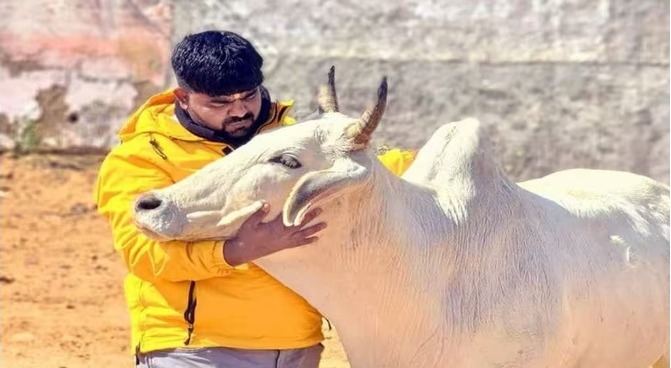In a heated parliamentary session, opposition leader Rahul Gandhi found himself at the center of political crossfire after repeatedly referencing China in his speech during the motion of thanks to the President’s address. The Bharatiya Janata Party (BJP) seized upon his remarks, highlighting that he mentioned China 34 times in his 45-minute address.
 Gandhi’s speech focused on India’s economic and technological challenges, particularly in comparison to China. He argued that India lags a decade behind its neighbor in key sectors like production and data, warning that this gap poses a serious threat to the country’s future. He was especially critical of the government’s ‘Make in India’ initiative, attributing its shortcomings to China’s growing presence in Indian territory. He also raised concerns about India’s reliance on Chinese technology in critical industries, cautioning that in the event of a conflict, India could find itself dependent on Chinese-made components.
Gandhi’s speech focused on India’s economic and technological challenges, particularly in comparison to China. He argued that India lags a decade behind its neighbor in key sectors like production and data, warning that this gap poses a serious threat to the country’s future. He was especially critical of the government’s ‘Make in India’ initiative, attributing its shortcomings to China’s growing presence in Indian territory. He also raised concerns about India’s reliance on Chinese technology in critical industries, cautioning that in the event of a conflict, India could find itself dependent on Chinese-made components.
His remarks triggered sharp reactions from BJP leaders, who accused him of undermining India’s progress. Amit Malviya, head of BJP’s IT cell, shared a video compilation of Gandhi’s repeated mentions of China, while BJP MP Sambit Patra took a more direct approach, mockingly referring to him as “Rahul Jinping.” Patra further blamed previous Congress-led UPA governments for India’s manufacturing struggles, arguing that the trade deficit between India and China had skyrocketed under their rule.
Gandhi’s speech also touched on the importance of data in modern economies, stating that artificial intelligence (AI) is meaningless without control over data. According to him, China has taken the lead in this domain, with its dominance over production-related data putting India at a disadvantage. He expressed concern over the concentration of power within a few corporate entities in the Indian banking sector, calling for a more inclusive system that supports small and medium-sized businesses.
The Congress leader also addressed India’s territorial concerns, citing statements from the Chief of Army Staff to claim that Chinese troops had entered Indian land. He linked this situation to the government’s failure to strengthen domestic manufacturing, asserting that India’s dependence on Chinese imports had left it vulnerable.
Congress MP Gaurav Gogoi supported Gandhi’s stance, pointing out that even External Affairs Minister S. Jaishankar had acknowledged China’s superior military and economic strength. Gogoi criticized the government’s handling of trade relations, arguing that rising imports from China signal a lack of strategic response.
While BJP leaders dismissed Gandhi’s claims as exaggerated and politically motivated, his speech reignited a broader debate on India’s economic policies and its positioning in the global landscape. The discussion also underscored the deep divisions in Parliament over how to address China’s influence—both economically and geopolitically.




